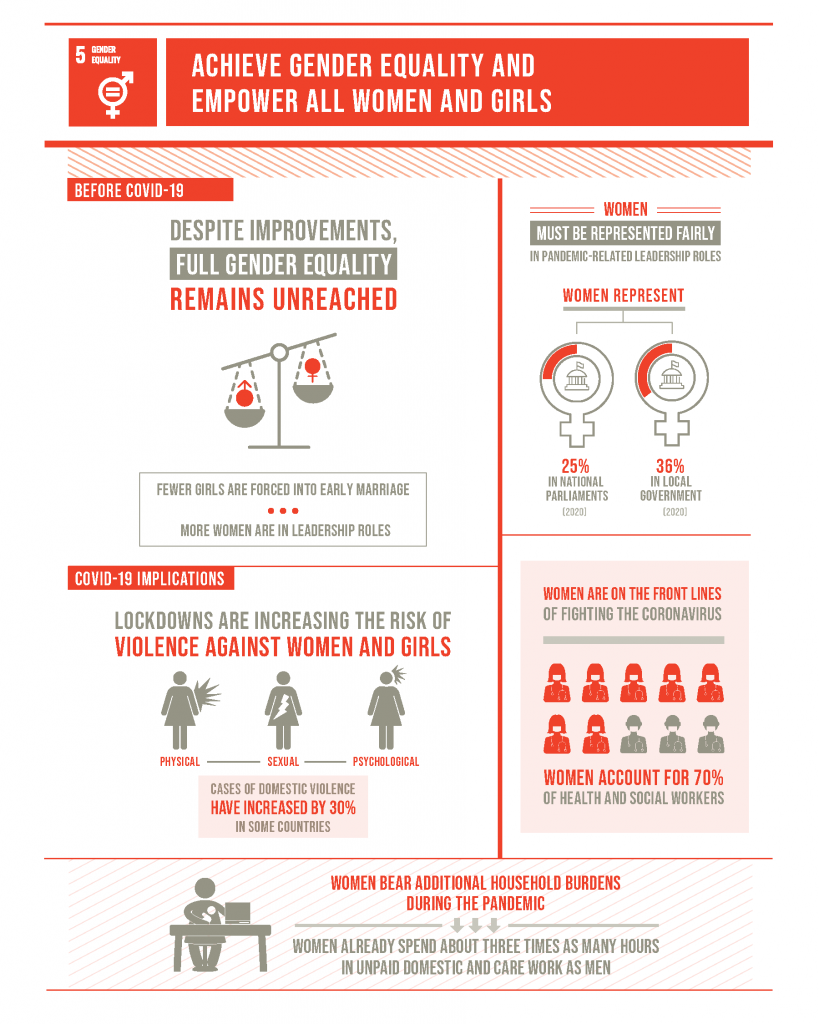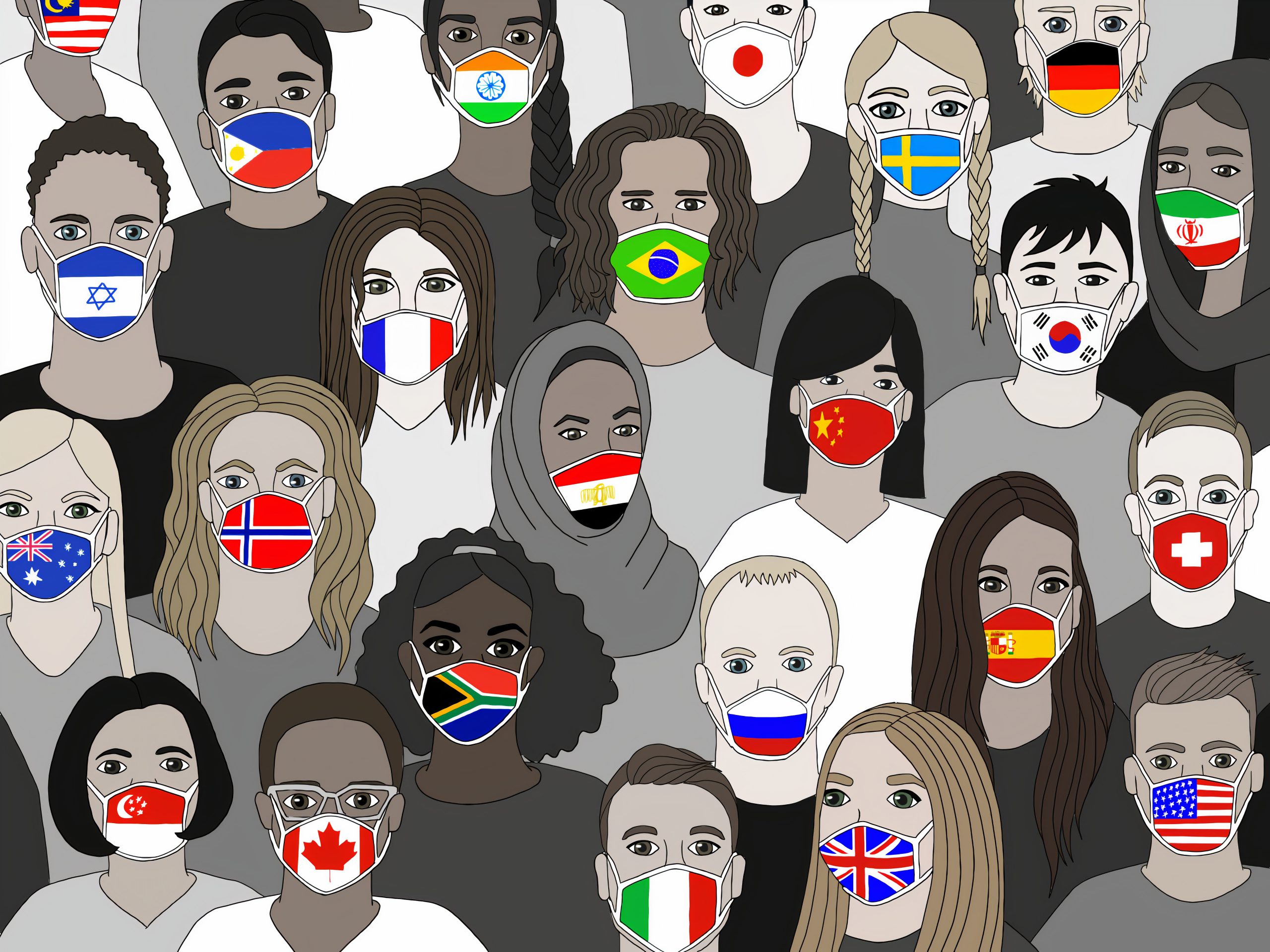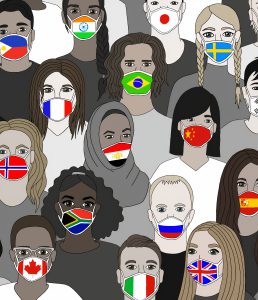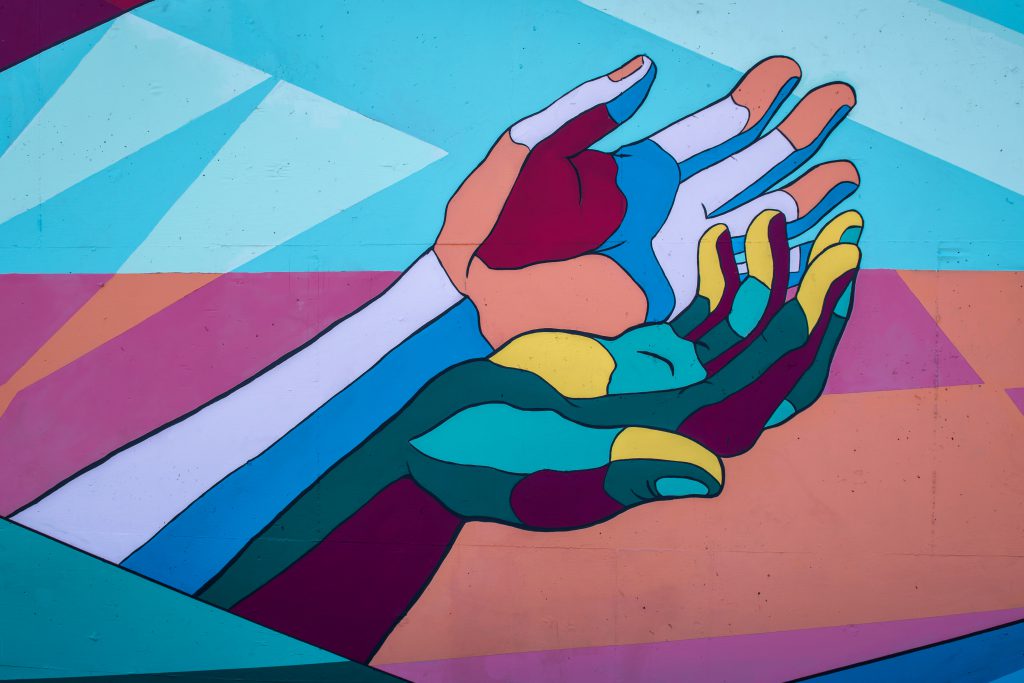Welcome to my second blog post in the series gender, development & ICTs – this time with a focus on the struggle of mental health issues during the global pandemic. I am concerned with the effects of COVID-19 on our mental health, the potentials of ICTs to offer solutions, and the challenges of reaching people around the world.
How is COVID-19 affecting our mental health?
Mental health issues affect around 1 billion people around the world. Though, countries on average spend only 2 percent of their health budgets on mental health and in low-income countries only around 1 percent, according to a new report released last week by the World Health Organization (WHO). On World Mental Health Day on October 10th, the WHO advocated for a stronger focus and increased funding for mental health. In the words of the director-general of the WHO at the global online Big Event for Mental Health:
“There is no health without mental health”
Dr. Tedros Adhanom Ghebreyesus, Director-general of the WHO
During the current global pandemic, social distancing and quarantine are crucial actions used to slow down the negative effects of the coronavirus. Though, these interventions have led to reduced physical activity, feelings of isolation, and limited access to medical treatment and social support for many. Disease experience, job loss, and financial uncertainty, and the stream of disquieting news about COVID-19 have further increased the feeling of distress and worry for many. Especially for people with existing mental illnesses and anxiety disorders.
Effects on gender equality
COVID-19 affects the lives of millions of people around the world. Though, a recent study with participants from China, Iran, the US, Turkey, Nepal, Denmark, Italy, and Spain drew the conclusion that women are more likely to develop depressive symptoms compared to men. Partly because women more often provide emotional support to elderly and children and make up a larger percentage of the workers in the vulnerable sectors of healthcare, retail, and the service industry. A UN policy brief drew similar conclusions that women and girls are facing disproportionate impacts from the pandemic due to them for example:

- accounting for 70% of the world’s health and social workers,
- taking on more unpaid work such as caring for elderly relatives, home-schooling children and carrying out household chores,
- in general earning less, holding insecure jobs, and having lost more paid employment than men,
- experiencing an increase in gender-based violence since the beginning of the pandemic
In addition, women belonging to an ethnic minority or low-income population are extra vulnerable as they are more likely to work in essential jobs and suffer greater economic consequences.
These challenges in women’s lives threaten gender equality in the world and add to the mental strain of women with some of the likely consequences being stress, anxiety, and depression.
Tech for mental health
Many countries are currently struggling to deal with the high demand for mental health services and a lack of mental health professionals due to the pandemic. Besides, mental health care is not included in many’s health insurance and is too expensive (Semo & Frissa 2020). Something which poses great challenges for people to access the help and support they need.
As in-person care is not always a possibility due to among other lacking access or cost, there has been a rise in web-based technologies for mental health, among others in:

- Telemental health (counselling and support via e.g. video conferencing or online chat)
- Mobile interventions (smartphone applications focused on e.g. mindfulness)
- Text messaging platforms
More studies have estimated the effectiveness of virtual mental health services such as teleconferencing to be comparable to in-person services. Additionally, mental health apps backed up by scientific research have shown effectiveness in decreasing symptoms of depression and anxiety, and text messaging is effective in behavioural health promotion, especially for low digital literacy populations.
With COVID-19, the use of ICTs in mental health care has been fast-forwarded and technology in all its shapes been used for different purposes. In China, Artificial Intelligence has for example helped detect posts on social media from people in crisis and likely to commit suicide to reach them proactively. Social media platforms have been used to share mental health education and communication materials (e.g. via Twitter or WeChat in China), though also to spread disquieting “fake news”.
Figueroa & Aguilera (2020) argue that we need more safe and secure technology to scale up access to mental health support remotely and on a wide scale during and after the pandemic. Such digital tools must be affordable, accessible, and appropriate for a wide group of people with among other different ages, language skills, technical abilities, and levels of digital literacy.
Challenges
Making mental health services available online is a crucial first step towards reaching people. Though, we should keep in mind that such services only will reach those who have the resources and literacy to access them. Contextual consideration and understanding are important to understand different results across contexts.
Semo and Frissa (2020) have studied the mental health challenges COVID-19 is currently bringing to Sub-Saharan Africa, among other due to the area’s weak health care systems. They claim that the general use of mental health services in the region is low. Instead, many rely on self-help or find comfort in attending religious events and prayers. They further emphasise that the internet usage gap within the region is huge. Whereas 87% of Kenyans use the internet, only 6,3% of people in Chad do. Digital literacy also varies greatly between city and countryside as more people in urban settings can access digital platforms.
This poses a challenge to the access and use of online services. They, therefore, argue that web-based technologies should be combined with traditional and widely used media such as TV and radio to communicate self-help measures, broadcast religious services, educate around stigma, and share survivor experiences. Their study shows that context is key to understanding people’s ability to access and desire to use technologies.
When looking at the digital gender gap in the world, around 433 million women in low- and middle-income countries are still without internet access and women are 8% less likely than men to own a mobile phone, due to among other price and lacking digital skills. As mentioned in a previous post, women’s access and use of technology can also be highly limited by societal constraints, gender norms, and personal living conditions with controlling family. Hence, offering digital tools and services does unfortunately not mean that all women will be able to access and use them.
Radio for togetherness
Besides digital mental health services, alternative initiatives around the world address issues of mental health with a wide audience.
The participatory feminist initiative HammamRadio was launched during lockdown from Berlin by five women with a Middle Eastern background and uses the more traditional medium the radio in combination with online podcasts. HammamRadio is both available in Arabic and English and was created to offer a coping mechanism in these difficult times; “a place where women in all their diversity meet, talk, participate, think, shout, cry, laugh, become angry, love, and raise their voices” about topics such as mental health, gender norms, sexism, relationships, politics, and literature.
One episode was for example concerned with mental health in Saudi Arabia, how people are often asked to turn to religion rather than counselling, and how mental health issues are often taboos for men in cultures where manliness is associated with not showing emotions. Another episode focused on COVID-19 and lockdown, and women from different parts of the Middle East reported how confinement is not just related to the pandemic but is a part of their everyday lives due to restrictions from male family members.
A safe space for support and comfort
While radio offers a sense of intimacy and comfort for the listeners, co-founder Abir Ghattas argues, another advantage is that it provides safeguarding that for example, social media do not. Female listeners are free to express themselves without fear of abusive backlashes, as they can for example post anonymously in the chat, which is erased every evening to ensure that trolls cannot track anyone.
Thus, HammamRadio wants to offer women a safe space where they can freely express their thoughts on mental health, share struggles, and feel a sense of togetherness during this difficult time. Hopefully, women caring for others, working at the forefront of the health sector, feeling isolated, or anxious can find relief and calmness in initiatives like HammamRadio made available online.
Mental health issues during and after the global pandemic affect people across gender, ethnicity, sexuality, and social class and the effects are likely to be long-lasting. The many health services and tools made available online will bring support and comfort to many people during this global pandemic, but it is important to remember that inequality in access and use will leave many behind.
References
- Figueroa, C. & Aguilera, A. (2020) The Need for a Mental Health Technology Revolution in the COVID-19 Pandemic. Frontiers in Psychiatry. Vol 11 (523), 1-5.
- Semo, B-W. & Frissa, S. (2020) The Mental Health Impact of the COVID-19 Pandemic: Implications for Sub-Saharan Africa. Psychology Research and Behavior Management. Vol 13, 713-720.
Internet sources
- Devex – We cannot allow COVID-19 to reinforce the digital gender divide (4 May 2020)
- GSMA Connected Women – The Mobile GenderGap report 2020
- HammamRadio
- World Health Organization (WHO) – The Big Event for Mental Health (13 October 2020)
- World Health Organisation (WHO) – The impact of COVID-19 on mental, neurological and substance use services (5 October 2020)
- United Nations – The Impact of COVID-19 on Women (9 April 2020)




Thank you for bringing up that topic, Anne! It is interesting how women are affected by that crisis. I read a lot about how we lost emancipatory efforts in Europe during the last months as women are still those who carry out a lot of the care work and in those times they are especially burdened when working from home and helping their children with home schooling. But I didn’t know that also within the mental health topic, women are more likely to get affected… It’s great that there are initiatives like HammamRadio. Thank you for introducing it in your blog!
Hi Anna,
Thank you for making your way to our blog and commenting on my post. It’s a very interesting topic that needs a lot more talking about and positive initiatives by women for women deserve much more focus.
Pingback: Making ICT4D fit for its purpose - Illuminate